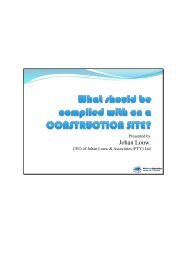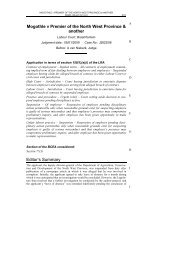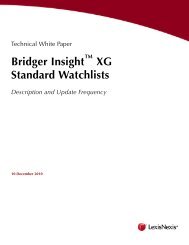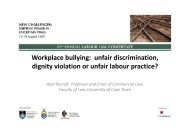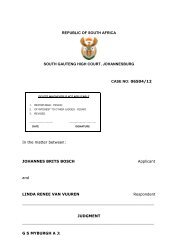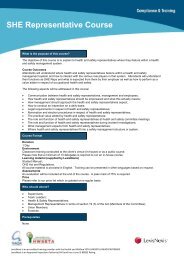Makhanya v University of Zululand - LexisNexis South Africa
Makhanya v University of Zululand - LexisNexis South Africa
Makhanya v University of Zululand - LexisNexis South Africa
You also want an ePaper? Increase the reach of your titles
YUMPU automatically turns print PDFs into web optimized ePapers that Google loves.
35[88] While the ratio <strong>of</strong> a decision is a rule <strong>of</strong> law, the rule itself exists as afact, and is thus capable <strong>of</strong> being discovered in either <strong>of</strong> two ways. It mightbe found in what a court says it is expressly. But where that does not occurthen, as with all facts, it is capable <strong>of</strong> being discovered circumstantially byinference. As Schreiner JA explained it in Fellner: 43‘Where, however, even when reasons [for the order] are given, it is not possible todiscover a ratio decidendi from them, it becomes necessary to resort to the facts found tobe material and to the order, as if no reasons had been given, so as to find what must havebeen treated by the Court as the law, if the order was to be justified.’[89] I find myself compelled to approach the matter in that way and todetermine, as if no reasons had been given, with reference only to thematerial facts and the order that was made, what must have been treated bythe court as the law if the order was to be justified. Fortunately in this case Ineed confine myself to only two possibilities.[90] I have already said that all arguments in support <strong>of</strong> jurisdictionalobjections <strong>of</strong> the present kind, when properly analysed, ultimately comedown to one or other <strong>of</strong> the three unsound propositions I have mentioned. Ihave also pointed out that each <strong>of</strong> them is fatally defective. One because it<strong>of</strong>fends an immutable rule <strong>of</strong> logic. Another because it is in conflict with theConstitution. And I need not concern myself with the third because if onlyone thing is clear it is that that was not the basis <strong>of</strong> its finding.[91] I can think <strong>of</strong> no other possible explanation for why the high courtmight not have had jurisdiction in Chirwa. Moreover, as I have pointed out,this case is not materially distinguishable. Thus if a high court hasjurisdiction in this case then it must equally have had jurisdiction in Chirwa43At 542F-G.




